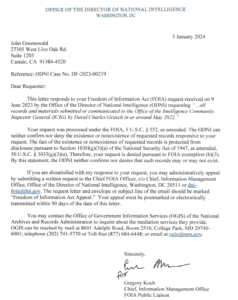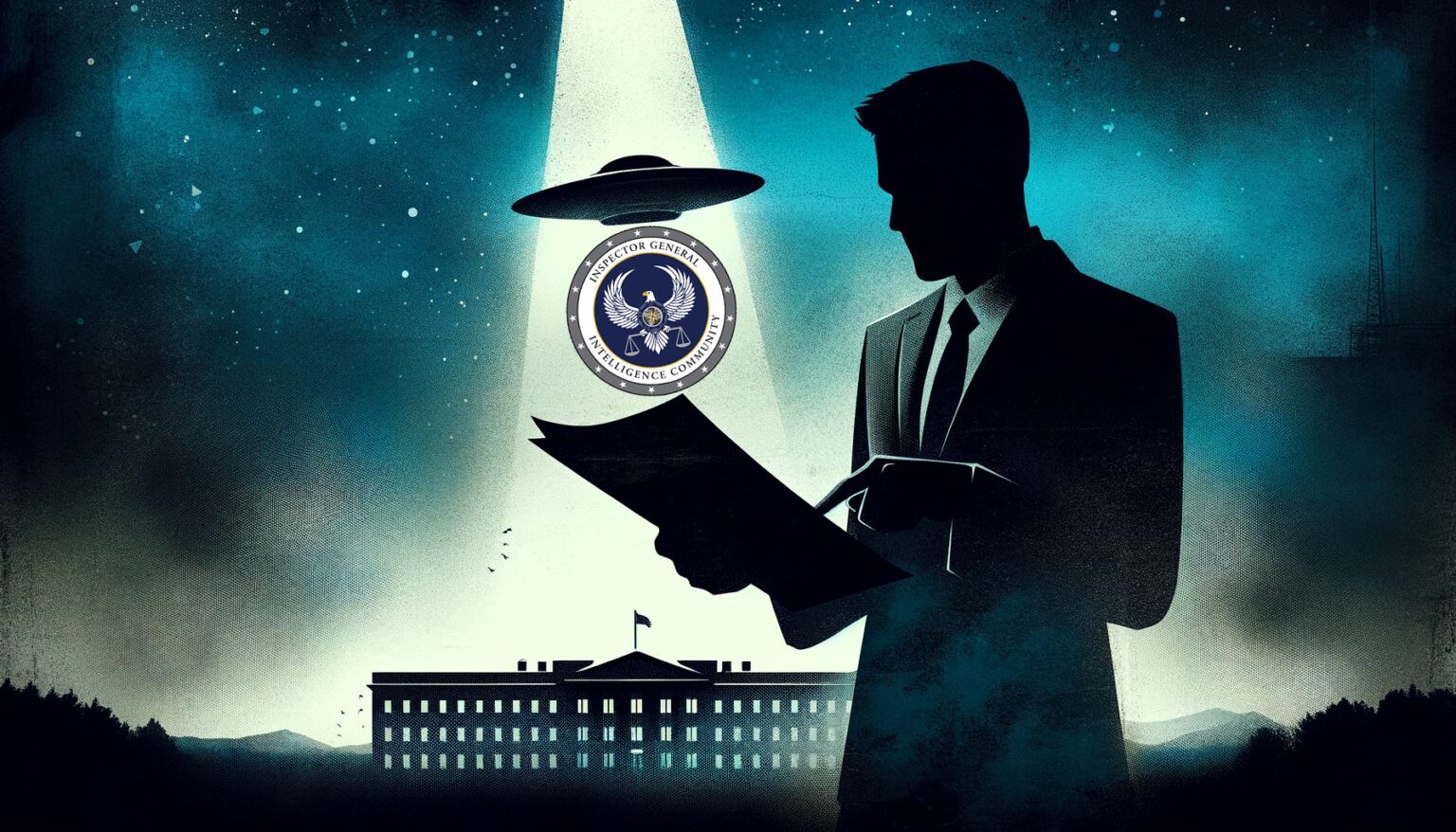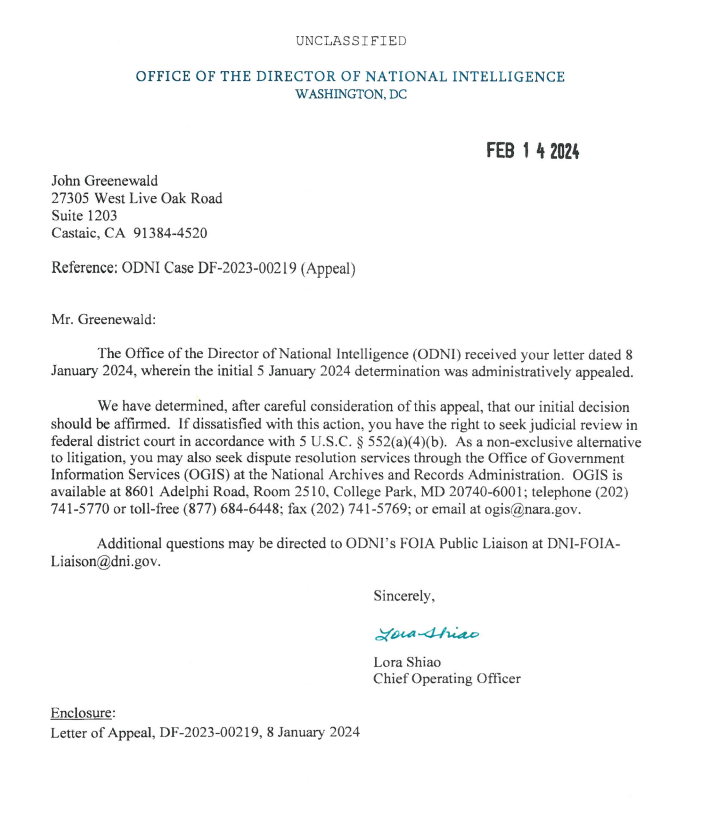
In June 2023, The Black Vault filed a Freedom of Information Act (FOIA) request for all records and materials submitted or communicated to the Office of the Intelligence Community Inspector General (ICIG) by David Charles Grusch in or around May 2022. David Grusch is known as the UFO Whistleblower, and the request aimed to obtain various forms of correspondence, reports, memos, notes, transcripts, photos, videos, and other documents related to his communications with the ICIG.

On January 5, 2024, the Office of the Director of National Intelligence (ODNI) responded to The Black Vault’s request with a “Glomar response,” stating that they could neither confirm nor deny the existence of the requested records. The ODNI cited FOIA exemption (b)(3) in conjunction with Section 103H(g)(3)(a) of the National Security Act of 1947, as amended (50 U.S.C. § 3033(g)(3)(a)), as the basis for their denial. This section of the National Security Act protects the non-disclosure of an employee’s identity without their consent.
Specifically, it states, “… the Inspector General shall not disclose the identity of the employee without the consent of the employee, unless the Inspector General determines that such disclosure is unavoidable during the course of the investigation or the disclosure is made to an official of the Department of Justice responsible for determining whether a prosecution should be undertaken.”
The Black Vault appealed the decision on January 8, 2024. The appeal argued that David Charles Grusch had already publicly disclosed his identity and details of his communications with the ICIG through testimony before Congress, public speaking engagements, news interviews, and the publication of his complaint through his attorney. The Black Vault contended that this public availability of related information challenged the rationale for applying the cited exemption to the requested records.
The appeal also emphasized that the release of the requested information would contribute significantly to public understanding of government operations, particularly the activities of the ICIG, aligning with the core purpose of the FOIA to promote transparency and accountability in government.
Despite these arguments, on February 21, 2024, the ODNI denied the appeal, affirming their initial decision. They stated that after careful consideration, they found no reason to overturn their original response. The ODNI’s decision to deny the appeal highlights a lack of transparency in government operations, as it prevents the public from accessing information about the interactions between a known whistleblower and the ICIG, which could be crucial for understanding government accountability and oversight in matters related to UFOs and national security.
###
Follow The Black Vault on Social Media:

